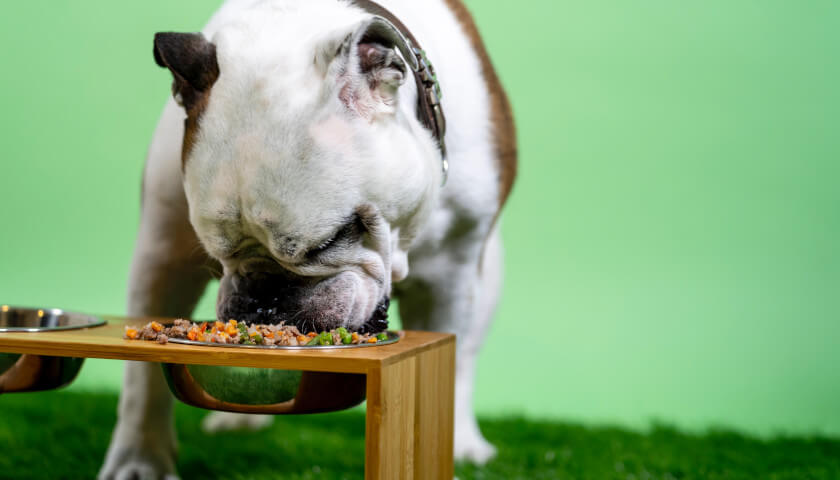Probiotics are live bacteria that decrease the pH of your dog’s gut and help other “good” bacteria thrive, regulating the balance of your dog’s microbiome. Recently, we’ve come to understand how important maintaining good gut health is for our digestion, immune support, and even mental health–and the same applies to dogs. Probiotics can help your dog digest their food, serve as a treatment for diarrhea, and boost their immune system.
How effective are probiotics?
Probiotics work best as a preventative, aka while your dog is still healthy. Once a disease is established, it becomes harder to kick them out. Instead, adding probiotics early on can help your dog develop a robust microbiome rich in microflora. This applies to stressful events–if your dog is prone to developing diarrhea when being boarded or on vacation, proactively supplementing their meals with probiotics several days in advance can help them ride it out with fewer gastrointestinal upsets.
Your dog most likely already has salmonella bacteria in their GI tract–considering the sheer amount of garbage that dogs like to eat, this probably won’t come as a surprise. However, even if your dog has salmonella bacteria, they’re unlikely to be affected unless their GI tract or immune systems grow weak. Probiotics compete for the same resources as these bacteria, starving them out and lowering the levels to a more tolerable amount.
Deley Naturals Advanced Probiotic Supplement for Dogs contains five different bacteria strains along with a proprietary enzyme blend that breaks food down to help your dog absorb more nutrients, getting more out of their food with every bite.
How do I know if my dog needs probiotics?
If your dog has bad breath, loose poop, gas, or poor coat health, probiotics might be the answer. Even if they don’t display these symptoms, certain behaviors–such as eating out of the garbage can or snacking on dead animals–can knock their stomachs out of whack.
A study found that probiotics can boost appetite, especially in older dogs. Elderly dogs saw improved overall health and immune system function, which the study attributed to the stimulation of antibody and cytokine secretion through the regulation of their gut microbiota. Intriguingly, around the 60 day mark, senior dogs had a “younger” gut composition. In plain English: probiotics can keep your old dog feeling young.
If your dog has irritable bowel syndrome, probiotics are associated with rapid clinical remission of symptoms.
Puppies have short digestive tracts and are still in the process of developing their intestinal bacteria. And, as any puppy owner can attest, they seem to be prone to diarrhea and all sorts of digestive upsets. As such, probiotics can help your puppy get through their growing pains more seamlessly while supporting their immune and digestive systems.
And although this sounds bizarre, your vet might suggest probiotics to take the edge off your dog’s anxiety. Though we don’t know the exact reasons why, studies have shown that your dog’s gastrointestinal health affects their mental health. Physically healthy dogs received probiotics containing Lactobacillus plantarum (also known as Lactiplantibacillus plantarum) and demonstrated improved emotional stability as well as reductions in separation anxiety and aggression.
Do probiotic supplements for dogs have side effects?
Probiotics are safe for your dog to take daily. Initially, your dog might experience some gas, digestive discomfort, nausea, or similar symptoms. These side effects pass as your dog’s stomach adjusts. As long as their appetite remains consistent, they are fine. They can be given long-term without side effects.
The only exception is if your dog is immunocompromised, as their immune systems may not be able to handle the strain of more bacteria. Consult your vet before adding probiotics to their diet.
Your dog can take human probiotics. However, human probiotics do not contain species-specific bacteria strains that your pet needs, so it is unlikely that they would experience any significant benefit.



Leave a comment